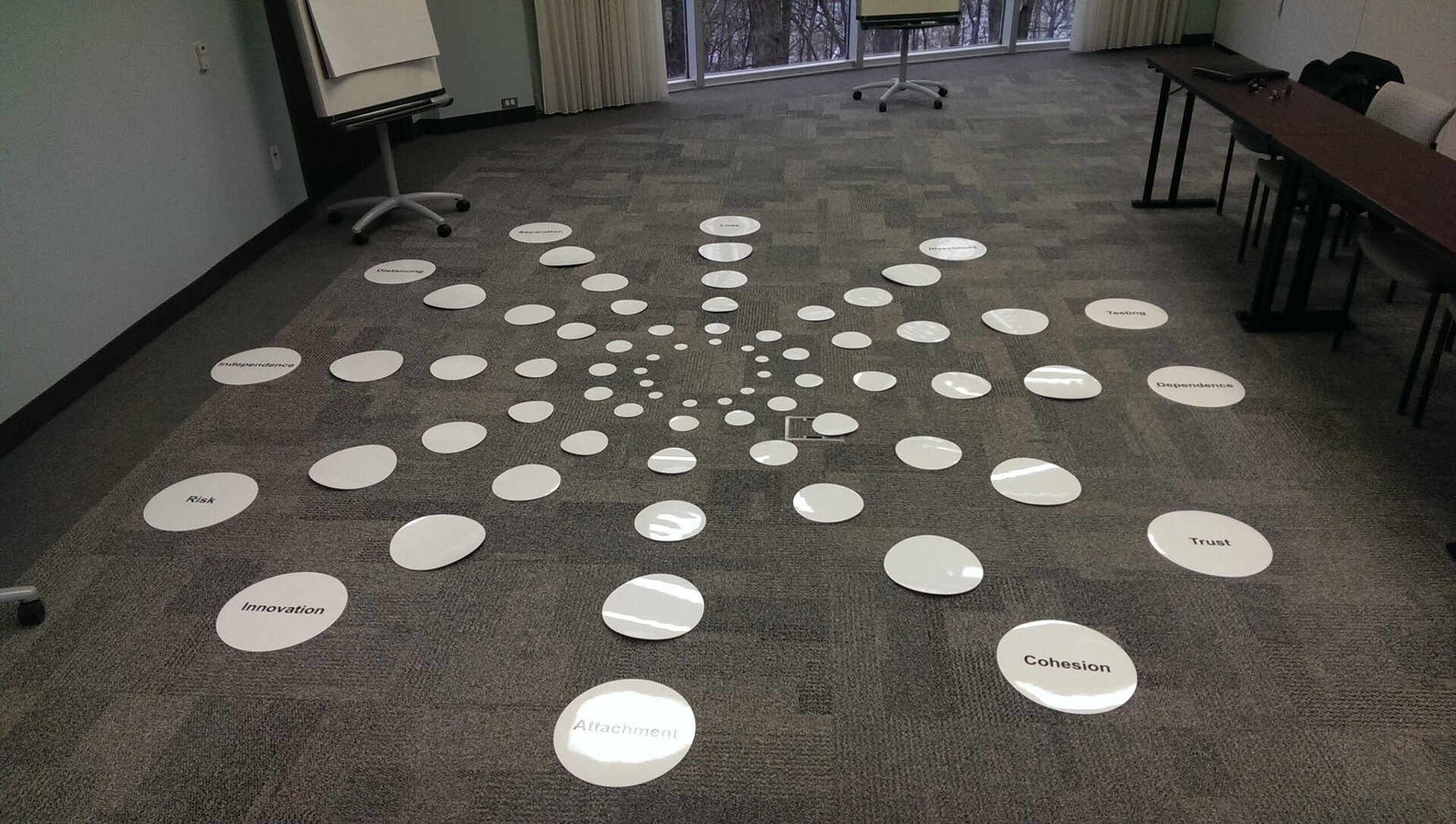Watch the clock. As the hands make their way past the one, two and three, your team is investing in its foundation. As they move their way past the four, five and six, trust is being built. Once they travel across the seven, eight and nine, your team is taking risks and creating innovations. Finally, as the hands click past the ten, eleven and twelve, your team is adapting to the change it just created, only to arrive at a new stage of re-investment again at 1:00.

Around and around and around, from one stage to the next. Let’s look at each hour:
1:00 Teams enjoy clarity about norms, rules, roles, boundaries, goals and responsibilities.
2:00 Differences are celebrated as strengths and conflict is viewed as an opportunity.
3:00 Teams share a common vision for the future and a commitment to move forward together.
4:00 Team members follow through with commitments and accountability grows trust.
5:00 A personal connection develops as teammates collaborate and the ‘we’ becomes more important than the ‘me.’
6:00 Teammates feel attached and fix anything that falls outside of agreed-upon norms. This becomes the platform for growth.
7:00 Time and resources are dedicated to solving complex problems. Comfort is sacrificed to allow for exploration and discovery.
8:00 Smart risk-taking pushes the team to new levels while team members embrace the change created by innovation.
9:00 Team culture empowers freedom and encourages change in team structure to achieve breakthrough performance.
10:00 Team members hold themselves accountable for managing change effectively with maturity and resilience.
11:00 Teams acknowledge loss and talent is repositioned to accommodate new realities.
12:00 Teammates refocus and reinvest in the team’s next challenge.
In which stage is your team? How did you arrive there? What actions will move you to the next stage? More importantly, what is causing teammates to join you in moving forward or remain stuck in some other stage. Maybe everyone isn’t supposed to be in the same place.
Try this exercise the next time in-office gatherings permit. Imagine the clock on the floor in a conference room. Ask each teammate to stand on the number that best represents where they are on the Team Clock. Take turns sharing why you are there and what you need from your teammates in order to move forward. The clock never stops moving.
